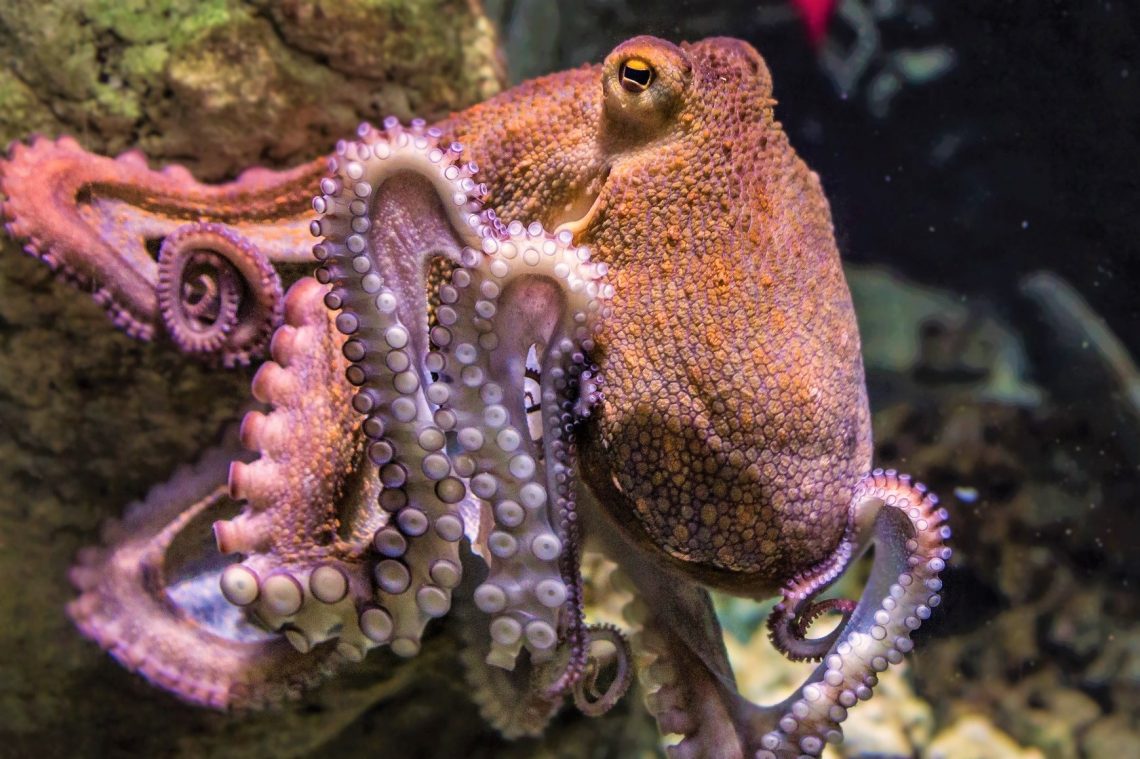
All at Sea: Are Aquariums Ethical?
This Week: Are Aquariums Ethical?
Last week we looked at zoos and whether or not they provide a net benefit to conservation efforts. It’s a common question. But there’s another major space where animals are regularly kept in captivity: aquariums. Are aquariums ethical places to keep living organisms and do they contribute significantly to conservation?
In a way, the question here may actually be even more poignant than for zoos. After all, even the Serengeti pales in comparison to the size of the Pacific Ocean.
Marine creatures know no borders. Surely a tank could be more damaging to these oceanic beings than to many of the animals we regularly find in zoos.
So why, then, do aquariums so rarely enter the conversation when it comes to talking about animals in captivity?
To Be Clear…
If you’ve come across One Wild Thing before, you’ll probably already sense that this one is close to my heart. I adore the ocean. I have a degree in marine biology and oceanography. Few things bring me more joy than looking out over the waves from the top of a cliff or the side of a boat.
I’m telling you this because I think it’s important to know the perspective from which I am writing and the biases I may hold on whether aquariums are ethical. It’s on this basis that I want to be clear on a couple of things.
Firstly, here I am talking about large, commercial, public aquariums in the UK only, such as Sea Life Centres, where trained professionals care for the animals in a carefully researched manner. I am not talking about personal, home aquaria, where clearly owners will do a varied job of responding to their animal’s needs.
Secondly, I am not referring here to the keeping of large marine mammals in captivity, such as whales and dolphins. I am very much against this practice and will be touching on this subject next week.
My Theories
So, with my disclaimer out of the way, let’s return to the question of whether aquariums are ethical is so rarely discussed in relation to captive animals.
My theory? It’s because of the one thing that draws me to marine life more than any other: it doesn’t look like us.
Take a look at a lemur. Look into it’s eyes and see all the ways that it looks and acts in ways that we do. We relate to other mammals in a far more obvious way than any other organism.
Birds and reptiles are a little more removed and insects even more so…but isn’t part of the reason that people hate to look at snakes and spiders that they look so different to ourselves? Eight legs or no legs, we find very hard to handle!
But by the time we get to the animals of the ocean, they’ve become so alien we can hardly relate at all. Add to that the fact that most of the time we wouldn’t even know they were there, and suddenly it becomes a little harder to care for the welfare of an octopus compared to that of our cute little lemur.
That’s why I want to talk about this now. Let’s give those weird little guys a voice from the deep. I’ll let you know my thoughts and I’d love to know yours in turn!
Why I’m Okay with Aquariums
Education for the Nation
The hidden nature of the ocean isn’t just a problem when it comes to the question of animals in captivity. It’s a problem when it comes to everything to do with protecting the Earth’s most delicate ecosystem. If we can’t see it, why should we care?
The vast majority of people will never be able to see even a fraction of what an aquarium has to offer in the wild.
Meanwhile, our impacts, as we know, are HUGE. Coral reefs are disproportionately affected by climate change, with bleaching events on the increase. Ocean acidification prevents animals making skeletons and shells. Our plastic obsession is littering our oceans with fragments of microplastics.
But all of this is out of sight and, too often, out of mind.
I will concede, aquariums, just like zoos, are made for humans, not animals. In this case however, I do think that often, the ends may justify the means, as it allows us a glimpse into a world completely hidden from view but intrinsically impacted by every action we take from our place of comfort on dry land.
A Place of Study
The remote nature of some of these habitats also makes these animals, which are so vital to our ecosystems, incredibly difficult to study.
In the UK, aquariums are genuinely invaluable places of study for marine biologists and other scientists.
Take a look at the Sea Life Trust’s research page to find out more about the real and valuable research going on in their aquariums across the world.
A Small Fish in a BIG Ocean
Whilst the ocean is huge, not every fish uses it all.
Think about clownfish. They rarely stray very far from the confines of their anemones. Are aquariums ethical, therefore, in placing this species in a tank?
There are plenty of other examples of organisms which live their lives on a reef, in the confines of mangrove roots, or within the boundaries of rockpools, whose lives may be just as well-lived in a well-run aquarium.
How about jellyfish? They are used to travelling long distances but I would think that their lack of brain means in that in a well ventilated tank with plenty of water movement, their lives would seem almost unaltered.
Where I Have Difficulty…and Others Might Too
The Complexity of Ocean Ecosystems
I’m not denying there are problems. No system is going to be perfect and aquariums certainly have flaws.
First of all, there is the unimaginable interconnectedness and complexity of marine ecosystems.
These habitats are not neatly contained in the way that a section of rainforest might appear. The oceans span the entire planet. They all flow into one another. They are vast. We could not possibly hope to recreate even a fraction of that complexity in a tank.
Food chains interweave to form giant webs. Nutrients upwell from depths of kilometres. The weather alters ocean conditions in minutes and cycles like El Nino and La Nina govern happenings from year to year. Enormous oceanic gyres and global currents help to circulate water around the entire planet.
We also could never hope to fully understand which exact parts of that ecosystem precisely serve the individual species we are trying to keep. These conditions may be a vital part of satisfying their needs which cannot exist in isolatation.
Wild Stays Wild
A shocking number of animals in aquariums across the country are STILL taken from wild stocks. Unless they are extremely healthy wild stocks, this needs to stop.
Taking animals from the wild will contribute to destabilising the delicate ecosystems which already hang in the balance, and risks contributing to extinctions- the opposite effect to what they aim to do!
Many UK aquariums do seem to be placing an increasing level of focus on creating in-house breeding programs and are striving towards decreasing their use of wild stocks.
From a pure conservation point of view, if aquariums are ethical I would argue that the practice of removing wild animals should be stopped immediately.
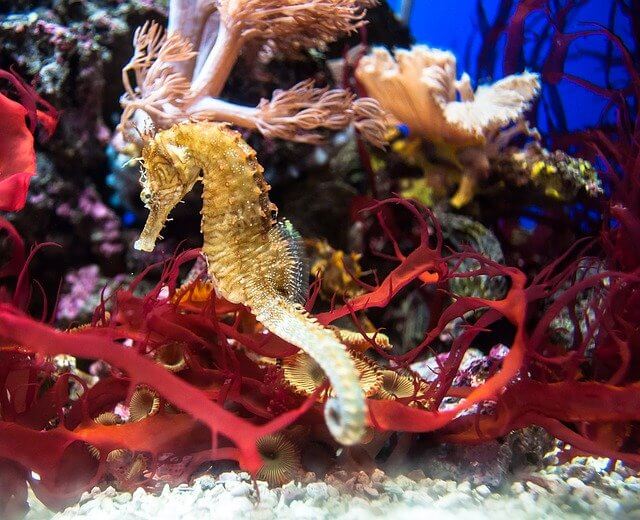
Tragic if You’re Pelagic
Sorry about the title…I couldn’t resist. I am a bit proud of myself too.
A pelagic animal is one that swims the open ocean, and this is where I believe we could draw the (somewhat footnoted) line for what can and can’t be house in aquaria. If it’s pelagic, it’s a no-go (with the exception of jellyfish).
I have seen tuna in an aquarium in France. These are long-ranging animals and, I believe, not okay to be placed in a tank. Turtles that migrate long distances, unless permanently injured and unable to survive the wild, should remain in the ocean.
The big one, of course, is sharks. I’m guessing they attract more guests than any other animal but I don’t feel uncomfortable about their being housed in tanks.
If they really are a must, aquaria should consider carefully the habits of their wild brothers and sisters and stick to smaller, less active species such as nurse sharks or, at a push, less wide ranging species like some small reef sharks.
A Solution?
Animal-Free Magic?
The real question, of course, is whether or not we could create the same educational effect without real animals?
The life sized blue whale or the skeletons of enormous cetaceans in London’s Natural History Museum, for example, attract millions of visitors a year at no cost to the current natural marine environment.
Parc Océanique Cousteau, I learned in researching for this article, was a project by Jacque Cousteau, aiming to create an aquarium experience with no living organisms. It relied instead on puppets and film to capture the magic of the ocean.
Perhaps in the future is in virtual reality, allowing us to actually feel like we are a part of the ocean itself.
It’s my feeling, however, that nothing will ever quite compare to having that real life, moving, living organism right before your very eyes, as if you are close enough to reach out and touch it. I’m not sure a screen, a skeleton or a puppet could ever have inspired me in the same way as peering wide-eyed and wonderous into a tank did as a little girl.
My Wishlist
So all in all, here’s my wishlist for an ideal world:
- No more animals to be taken from the wild. If it can’t survive, don’t keep it. If you can’t breed it, don’t take it.
- No petting of animals like rays. It’s unnecessary.
- Strict consideration as to the animal’s usual behaviour in the sea. If they would normal exhibit long-ranging behaviour or migrations, they shouldn’t be in an aquarium.
- An ability to admit when they are wrong and the open-mindedness to make changes. We all make mistakes and aquariums will too. The real test is the action that follows.
One Wild Thing
If you want to be an ethical aquarium visitor, do your research.
Find out how the aquarium supports scientific study. How do they source their animals? What species do they keep?
The presence of whales and dolphins is clearly red line I will NOT cross but as we have seen, sharks are a bit more murky. Check the species. Learn about their natural behaviour. Make judgements based on this.
If you’re unclear or unhappy about a particular animal, politely write to the company or contact them on social media. Do not turn it into a public shaming. Choose your words carefully and explain the reasons for your concern.
You may not get a reply, but as with any business, they are most likely to change when they know their customers want to know their aquariums are ethical.
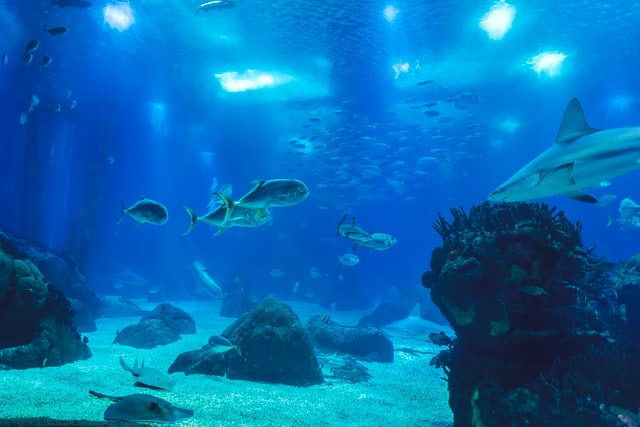



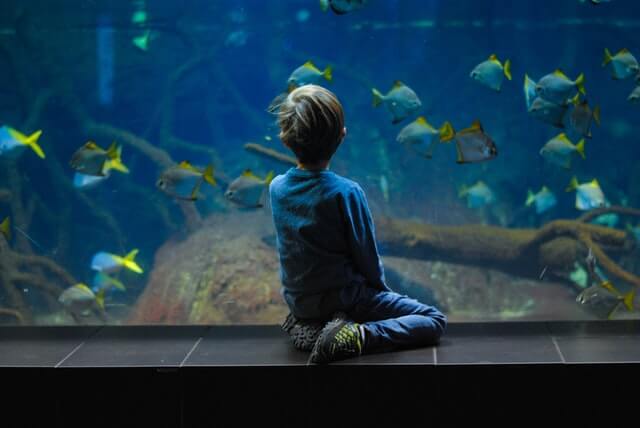
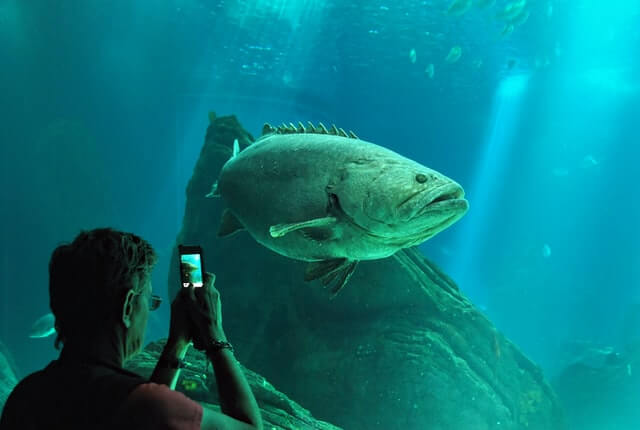
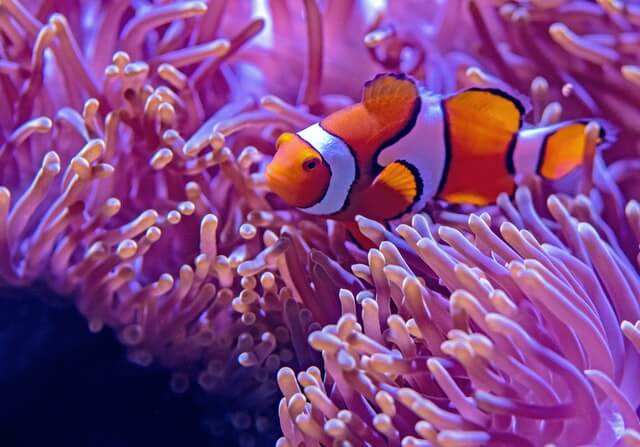
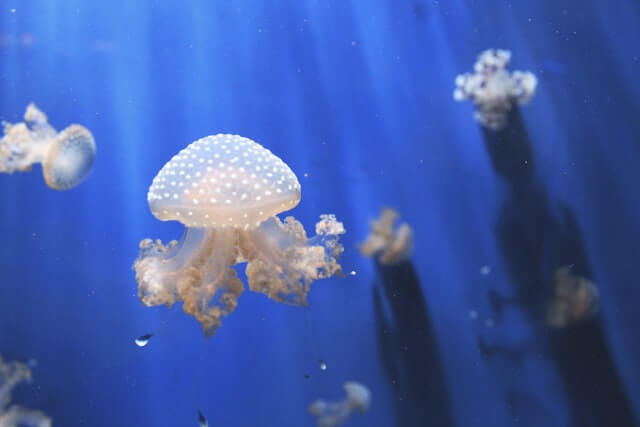
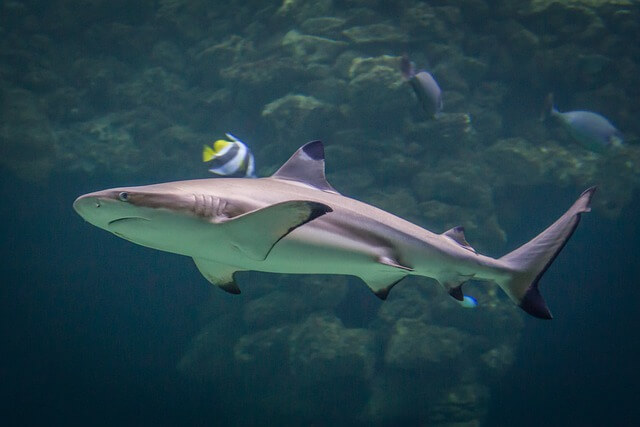
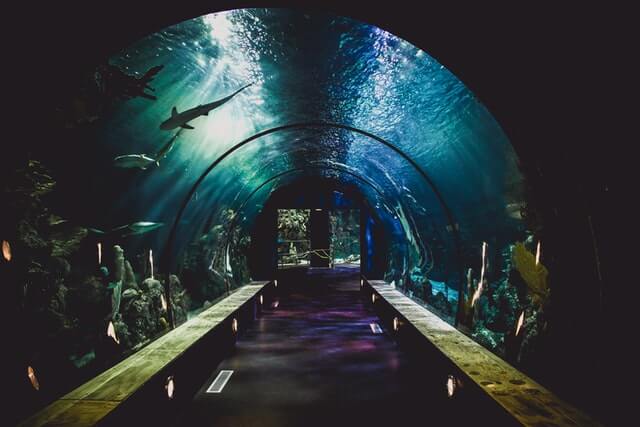


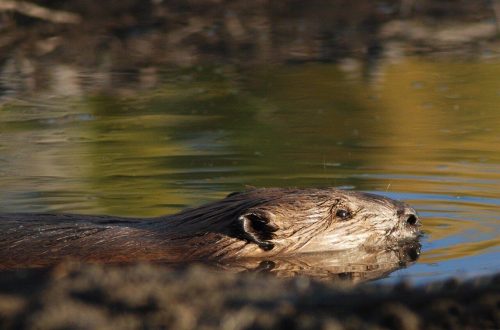
2 Comments
website
At this time it looks like WordPress is the top blogging platform out
there right now. (from what I’ve read) Is that what you’re
using on your blog?
lenew_21
Hi there, yes it’s from wordpress.org